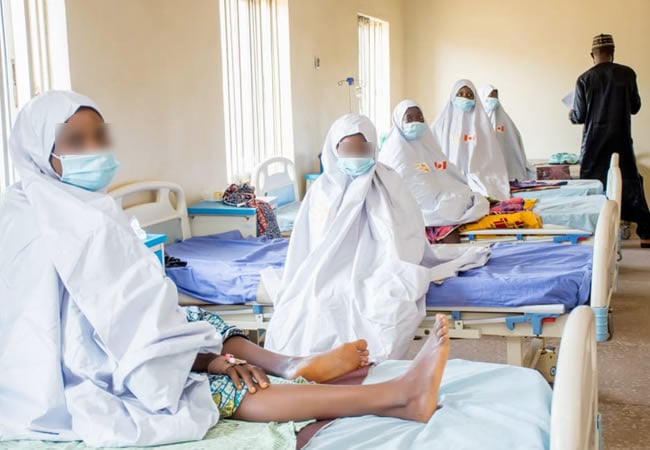Gynaecologists reassure women that following a successful surgical repair of a vesicovaginal fistula (VVF)—an abnormal passageway between the bladder and vaginal wall that can cause continuous urine leakage—enjoying a fulfilling sexual life is absolutely possible.
Experts recommend waiting at least 12 weeks after surgery to ensure the affected area has fully healed before becoming sexually active again. This healing period helps minimize complications and supports complete recovery.
They also note that each woman’s experience may differ, often depending on how long the fistula existed before repair and how much scarring developed. Some women may experience vaginal tightness or discomfort during intercourse as a result of the healing process.
In addition, reproductive specialists highlight the importance of counselling and psychological support before resuming sexual relations. Processing feelings of anxiety, fear, or trauma related to sex and pregnancy can ease the transition and improve sexual well-being.
During interviews with PUNCH Healthwise, seasoned obstetricians affirmed that women with repaired VVF who wish to have more children can become pregnant. However, they emphasized these pregnancies should be delivered by caesarean section at well-equipped healthcare facilities to safeguard the repair and the woman’s health.
VVF often develops as a complication of prolonged, obstructed labor. According to the United Nations Population Fund, over two million women worldwide live with this condition. In Nigeria alone, around 150,000 women suffer from VVF, and yearly there are about 12,000 new cases.
The condition carries a heavy burden—not just physically but also emotionally. Many Nigerian women with VVF face social stigma, isolation, abandonment by their partners, and mental health challenges.
In a conversation with PUNCH Healthwise, Professor Abubakar Panti, an Obstetrics and Gynaecology specialist at Usmanu Danfodiyo University, confirmed that sexual function can be restored after surgery and full recovery.
“We advise women to abstain from sexual activity for at least three months after surgery to support complete healing,” he said. “Before resuming intercourse, it’s essential to assess the pelvic floor. Some may face tightness or reduced strength, which can impact comfort.”
Professor Panti recommends pelvic floor exercises to help restore strength and flexibility. In some cases, working with a physiotherapist can be especially beneficial.
He went on to explain, “Women who have lived with VVF for a long time often associate the condition with pregnancy and childbirth. This history can create fear or anxiety about resuming sexual relations. Supportive counselling and even psychotherapy may help them process these feelings.”
“Many have experienced difficult situations—everything from marital breakups to being ostracized—so concerns about intimacy and relationships are understandable,” he added.
Scar tissue and vaginal shortening can also occur if there was extensive damage before the repair. This may lead to vaginal dryness or a decrease in elasticity.
“Typically, the vagina stretches to accommodate penetration. When scar tissue is present, this natural stretching might be limited, causing tightness or discomfort during sex. Lubricants can help, and sometimes further medical treatment may be needed,” Professor Panti explained.
Panti underscored that with skilled surgery, careful healing, and emotional support, most women can reclaim a satisfying sex life.
He encouraged women to discuss any concerns, pain, or difficulties with their gynaecologists to receive tailored advice for both their recovery and sexual well-being.
“Counselling is important for both the woman and her partner. It’s vital that the partner is patient, starts gently, and pays attention to any signs of discomfort, giving time for rest and adjustment as needed,” Professor Panti noted.
He also advised women to monitor for any symptoms of urine leakage and seek medical attention for any ongoing discomfort during intercourse.
For overall well-being, the professor recommends prioritizing good nutrition and practicing infection prevention.
“With patience, emotional support, and proper care, most patients enjoy a full, healthy sex life after VVF repair. The keys are gradual progress, open communication, and seeking professional advice whenever necessary,” he concluded.
Panti also pointed out that future deliveries should be carried out by caesarean section to avoid disrupting the surgical repair.
He added, “Women who have undergone VVF repair can often have children, but several important factors influence this—primarily the extent of the original damage. Sometimes, damage extends beyond the bladder to affect the uterus or cervix, which can impact fertility. Scarring, blocked fallopian tubes, or weakened cervical function may present challenges in conception or lead to pregnancy losses known as cervical incompetence. These cases require expert care and monitoring during pregnancy.”
Panti urges those experiencing conception difficulties to seek comprehensive fertility evaluation. For women who struggle to become pregnant naturally, assisted reproductive technologies may offer a solution.
In agreement, Professor Christopher Aimakhu, Second Vice-President of the Society of Gynaecology and Obstetrics of Nigeria, confirmed that many women are able to have sex after VVF repair, although those who experienced substantial delays before surgery or significant scarring can have vaginal tightening. “Most can resume sexual activity after the repair,” he said.
Professor Aimakhu also emphasized that any future childbirth after VVF repair must be by caesarean section to prevent recurrence and safeguard the repair site.
He cautioned that serious infections involving the uterus due to VVF can result in adhesions or problems with menstruation and fertility, which may make conception more difficult.









